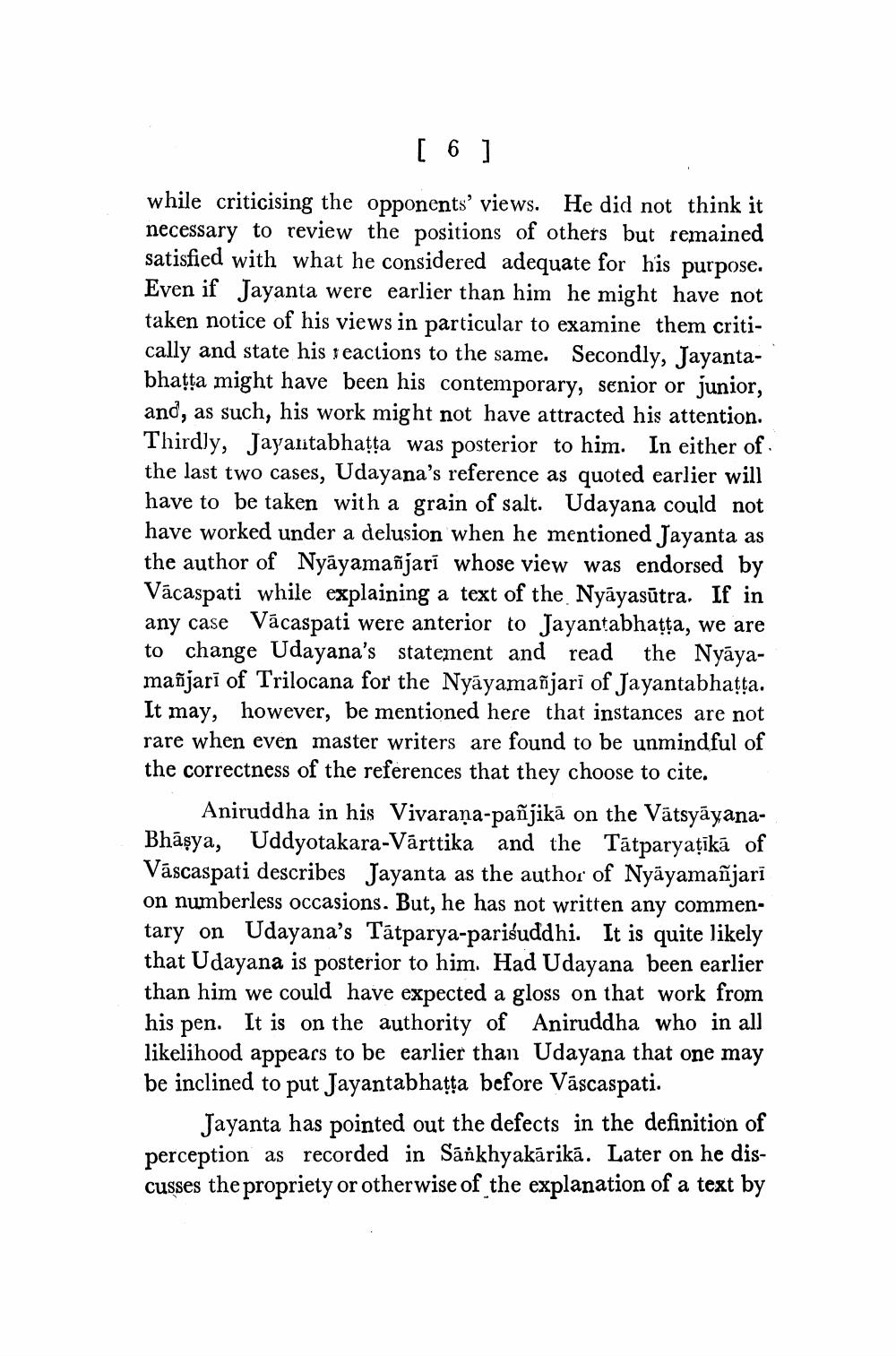________________
[ 6 ]
while criticising the opponents' views. He did not think it necessary to review the positions of others but remained satisfied with what he considered adequate for his purpose. Even if Jayanta were earlier than him he might have not taken notice of his views in particular to examine them critically and state his reactions to the same. Secondly, Jayantabhațța might have been his contemporary, senior or junior, and, as such, his work might not have attracted his attention. Thirdly, Jayaritabhatta was posterior to him. In either of the last two cases, Udayana's reference as quoted earlier will have to be taken with a grain of salt. Udayana could not have worked under a delusion when he mentioned Jayanta as the author of Nyāyamañjarī whose view was endorsed by Vācaspati while explaining a text of the Nyāyasūtra. If in any case Vācaspati were anterior to Jayantabhatta, we are to change Udayana's statement and read the Nyāyamañjarī of Trilocana for the Nyāyamañjari of Jayantabhatta. It may, however, be mentioned here that instances are not rare when even master writers are found to be unmindful of the correctness of the references that they choose to cite.
Aniruddha in his Vivarana-pañjikā on the VātsyāyanaBhāșya, Uddyotakara-Várttika and the Tātparyaţikā of Váscaspati describes Jayanta as the author of Nyäyamañjarī on numberless occasions. But, he has not written any commentary on Udayana's Tātparya-parisuddhi. It is quite likely that Udayana is posterior to him. Had Udayana been earlier than him we could have expected a gloss on that work from his pen. It is on the authority of Aniruddha who in all likelihood appears to be earlier than Udayana that one may be inclined to put Jayantabhasta before Váscaspati.
Jayanta has pointed out the defects in the definition of perception as recorded in Sankhyakárikā. Later on he discusses the propriety or otherwise of the explanation of a text by




